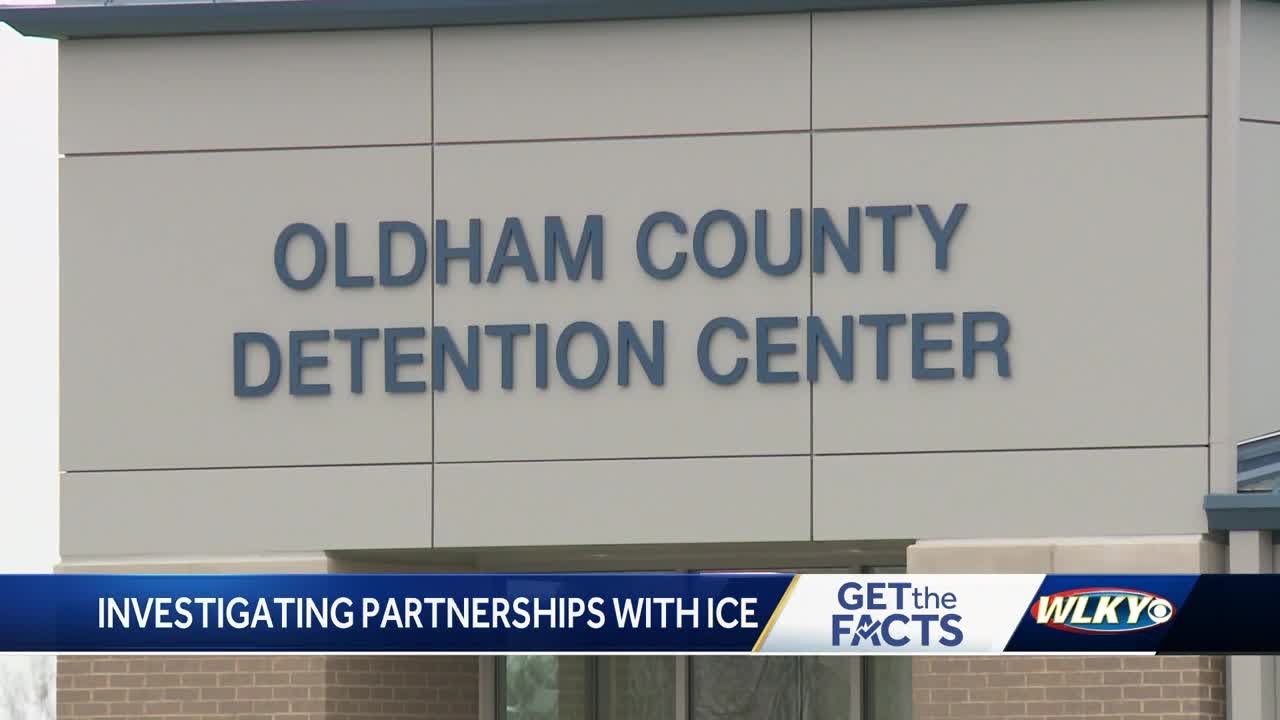News from the South - Kentucky News Feed
Morning weather forecast: 2/11/2025

SUMMARY: Good morning! Central and Northern Kentucky are experiencing snowfall, while Southern Kentucky sees mostly cold rain. The rain-snow line is moving north, with heavier snowfall reported south of I-64, especially in Richmond. Accumulations reach about 3-4 inches there, with slushy roads due to wet, heavy snow. A winter storm warning is in effect until 7 AM tomorrow, with potential freezing drizzle and flooding concerns in southern regions. As temperatures rise, expect a transition to rain by this afternoon, with 3-6 inches of snow expected south of I-64. Improvements are forecast for the next week, with milder temperatures.

Stay safe on the roads folks. The snow is already piling up and conditions are deteriorating fast.
Subscribe to FOX 56 News on YouTube: https://www.youtube.com/c/FOX56News/?sub_confirmation=1
See more Crime Stoppers stories: https://FOX56News.com/news/crime-stoppers/
Stay informed about central Kentucky news, weather, and sports! Follow FOX 56 on our website and social channels:
https://www.FOX56News.com
https://www.youtube.com/c/FOX56News
https://www.facebook.com/FOX56News
https://twitter.com/FOX56News
https://www.instagram.com/FOX56News
https://www.linkedin.com/company/FOX56News
News from the South - Kentucky News Feed
Trump administration revokes Murray State international student’s visa

by McKenna Horsley, Kentucky Lantern
April 18, 2025
Another international student’s visa has been revoked in Kentucky, this time at Murray State University.
According to local news reports, Murray State shared information about the student’s visa being revoked by the Department of Homeland Security on Wednesday. A university spokesperson declined to give further information to protect the student’s privacy.
The news comes amid Trump administration efforts to ramp up deportations. Inside Higher Ed reported that as of Friday, more than 1,550 international students and recent graduates have had their legal status changed by the U.S. State Department.
Murray State College Democrats penned an open letter criticizing the university administration for not alerting students sooner to the visa revocation and asking for clearer information about the university’s response. “To be clear, we are not asking that personal information be released, just notification of when law enforcement is present and/or actively targeting students on campuses,” the letter says.
The College Democrats said students and their families choose colleges like Murray because they trust they will be safe there and that Murray “boasts about having international students from over 50 different countries.”
“Every student that seeks to learn at MSU has the right to do so without fear of persecution,” the letter reads. “Actions taken by administration are the only way to prove that the university cares about and will protect those rights.”
A Murray spokesperson did not immediately return a request for comment Friday afternoon.
Earlier this month, the University of Kentucky reported a “small number” of graduate students had their visas revoked by the Department of Homeland Security. Officials from private Campbellsville University told Inside Higher Ed that some of its’ international students had their visas revoked but declined to say how many.
Kentucky Lantern is part of States Newsroom, a nonprofit news network supported by grants and a coalition of donors as a 501c(3) public charity. Kentucky Lantern maintains editorial independence. Contact Editor Jamie Lucke for questions: info@kentuckylantern.com.
The post Trump administration revokes Murray State international student’s visa appeared first on kentuckylantern.com
News from the South - Kentucky News Feed
Get the Facts: Is ICE partnering with Kentucky agencies to help with deportations?

SUMMARY: ICE is collaborating with several Kentucky counties to identify and arrest undocumented immigrants as part of the Trump administration’s immigration agenda. While Jefferson County does not partner with ICE, counties like Bullitt, Davis, Grayson, and Oldham are involved in a program that allows local officers to serve warrants for potential illegal immigrants in jails. These counties receive compensation for housing federal detainees, and ICE conducts regular inspections. Concerns about aggressive tactics and community fear are voiced by activists, particularly regarding the impact on local Hispanic populations. Some sheriffs acknowledge community worries while maintaining support for their partnerships with ICE.

Get the Facts: Is ICE partnering with Kentucky agencies to help with deportations?
Subscribe to WLKY on YouTube now for more: http://bit.ly/1e5KyMO
Get more Louisville news: http://www.wlky.com
Like us: http://www.facebook.com/wlkynews
Follow us: http://twitter.com/WLKY
Instagram: https://www.instagram.com/wlky/
News from the South - Kentucky News Feed
Legendary ESPN Broadcaster Lee Corso to work his final College GameDay show on August 30

SUMMARY: Lee Corso, the iconic ESPN broadcaster and former coach, will make his final headgear pick on College GameDay on August 30, 2025, coinciding with the start of the season. Corso, who turns 90 in August, has been with the program since its inception in 1987, making 430 picks with a record of 286-144. He expressed gratitude for nearly 40 years at ESPN, filled with friendships and memories. The three-hour show will celebrate his legendary career and preview significant games, as noted by ESPN Chairman Jimmy Pitaro, emphasizing Corso’s influence on college football fans across generations.
The post Legendary ESPN Broadcaster Lee Corso to work his final College GameDay show on August 30 appeared first on www.wtvq.com
-

 News from the South - Alabama News Feed7 days ago
News from the South - Alabama News Feed7 days agoImpacts of Overdraft Fees | April 11, 2025 | News 19 at 10 p.m.
-

 Mississippi Today6 days ago
Mississippi Today6 days agoOn this day in 1873, La. courthouse scene of racial carnage
-

 News from the South - Missouri News Feed7 days ago
News from the South - Missouri News Feed7 days agoMom and son targeted in carjackings, stolen cars crime spree
-

 Local News6 days ago
Local News6 days agoAG Fitch and Children’s Advocacy Centers of Mississippi Announce Statewide Protocol for Child Abuse Response
-

 Mississippi Today6 days ago
Mississippi Today6 days agoLawmakers used to fail passing a budget over policy disagreement. This year, they failed over childish bickering.
-

 Local News6 days ago
Local News6 days agoSouthern Miss Professor Inducted into U.S. Hydrographer Hall of Fame
-

 News from the South - Alabama News Feed4 days ago
News from the South - Alabama News Feed4 days agoFoley man wins Race to the Finish as Kyle Larson gets first win of 2025 Xfinity Series at Bristol
-

 Mississippi News Video7 days ago
Mississippi News Video7 days ago4/11/25- Beautiful weekend weather is expected














































